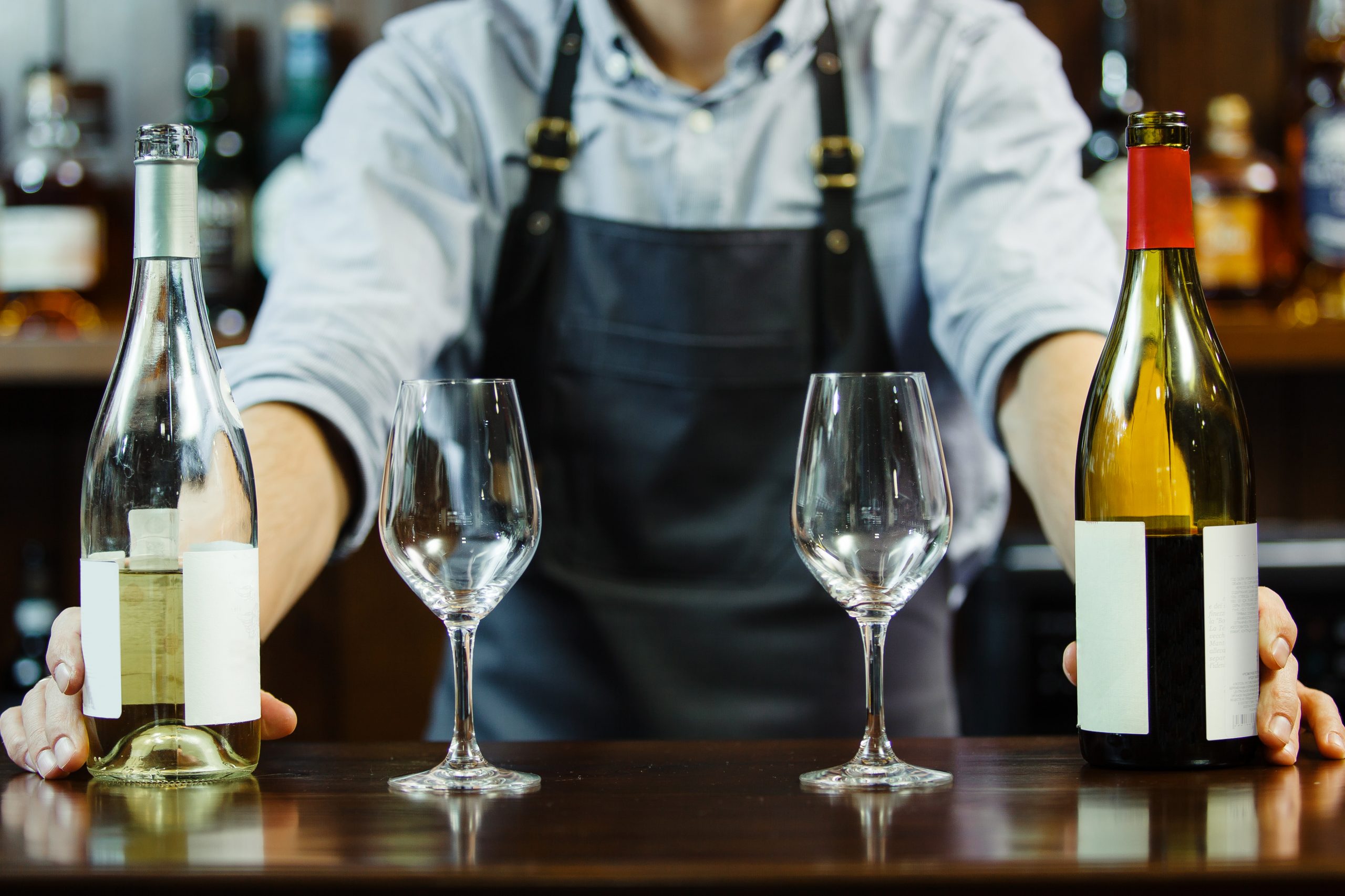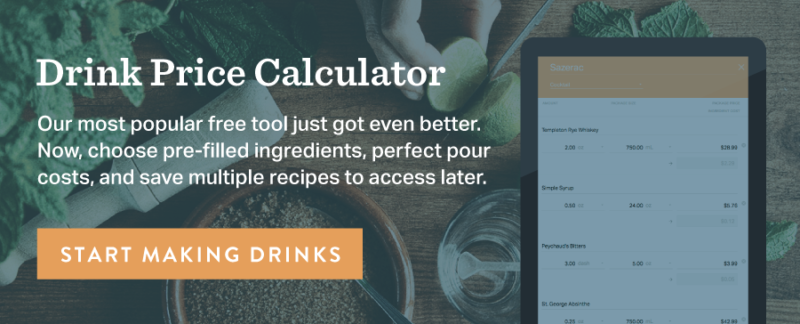
Culture
How to Make the Most of your United States Bartender’s Guild Affiliation
By Loren Bornstein
By Amanda Grosvenor

By Loren Bornstein
By Amanda Grosvenor


Previously, we introduced the United States Bartender’s Guild (USBG) and the resources it offers to bartenders across the U.S. and internationally. Now, two of BevSpot’s writers are taking a closer look at USBG chapters in Oregon and Rhode Island to get a better idea of how local chapters have made the most of their USBG affiliation and what types of solutions they have found for the individual challenges that have confronted them.
Amanda lives in Providence and runs into chapter members frequently around town, and Loren is a recent transplant to Boston from Portland, where he was a member of the Oregon chapter and got to know its leadership well. These two states could not be more different: they are on opposite coasts of the country, Rhode Island is tiny by comparison, while Oregon has been a food and beverage hotspot in the news for awhile.
But, we found some surprising common threads of thought in terms of how to make the most of the USBG, as well as some diverse ideas about innovation and branching out in new directions.
Loren: Nathan Gerdes is the recently stepped-down president of the Oregon Bartender’s Guild (OBG), which was founded in 2004 as a small, independent organization of bartenders who wanted to expand awareness of quality cocktail making or “craft bartending” as we refer to it now. The OBG voted to join the USBG in 2010 because of its promise of affordable healthcare for members (which ended up being moot and unnecessary when the Affordable Care Act was implemented—though with recent administration changes this may become a concern again). The Oregon guild has been a standout among West Coast guilds in terms of innovation and commitment to the craft and USBG principles, and about 40 members regularly attend guild events. Nathan is my good friend, a masterful mixologist, and an avid climber. He is my go-to on learning about integrating technology into the service industry from a grassroots level, and I have a big ol’ man crush on him.
Amanda: Jen Davis just took over a few months ago as president of the Rhode Island Bartender’s Guild (RIBG) which, as I mentioned in a recent post, was founded in 2011 by Frank Martucci and Michael Lester, who heard about the organization from friends working in the New York scene. They did so because Providence bartenders already wanted to “raise the bar of public perception and expand their craft into a real career” as well as to “network, connect, learn, and give back to the community,” in Lester’s words. Providence hosted the first ever United States Bartender’s Guild regional meeting in 2011, and Martucci went on to join the national board and helped put Rhode Island on the map. Roughly 15-20 members show up at the monthly meetings, although we should note that for both of these guilds, actual membership numbers are much higher—it’s just that not all people can make it to events regularly.
Loren: The OBG regularly hosts two events every month—a monthly meeting and a local social; however, it also partners with multiple brands to host other special events on a less regular frequency. For instance, the event formerly known as Portland Cocktail Week, Bar Institute—a local event turned national run by the USBG. More precisely, Nathan told me, “I would say on average we have three to four member engagements every month, so around 40 per year. Most of them are educational-based, but all of them are fun.” I can also speak to the truth of this, since I was an active member for the past 2 years before I moved to Boston. We had a Field Day to celebrate our members back in the summer that had a handful of sponsors, slip n’ slide kickball, and a lot of killer drinks and fun. The OBG really tries to create events that aren’t just getting together at a bar and celebrating excellent product and people (which is totally awesome), but you have to mix it up to keep people interested.
Amanda: Rhode Island hosts really fun and exciting meetups, which are very popular and help to build a strong sense of community. During her tenure, Jen also wants to bring in more of the educational element and to maximize those resources: “I’ve definitely wanted to focus more on the educational aspects, since I feel they’re the most valuable thing the United States Bartender’s Guild has to offer. You can go out any night of the week!” In March, the guild hosted a rum event with Plantation about the history of Tiki in Providence, and is also working on a bitters class and local RI beer tour in April or May to check out all the breweries. They also held a belated “Friendsgiving” party and 4th Annual Edinburgh Gin Cocktail Competition at the Grange this past January, which was a huge hit.
Loren: For Nathan: “inclusiveness, understanding, and empathy” are key points to what he sees as good leadership. Because I served as the Charity and Aid Director in the OBG, I can speak directly to Nathan and the rest of the council’s aptitude for listening to an increasingly diverse member base and acting when approached with their members’ concerns. Nathan and Nick Nye, the previous vice president and now president, both take matters serious and fun to heart and make it part of what is shared through the OBG. As Nathan explained, “Making cocktails isn’t a bartender’s primary job; making our customers feel welcome is; so making sure our guild practices and fosters that kind of openness and warmth is key to improving ourselves and our industry.”
Amanda: Jen describes herself as having a “born leader” personality and had always wanted to run for a position, but before last year, her schedule didn’t permit it. She says that, “When you’re in a leadership role, your real job is to provide support for people underneath you, and that’s what the real goal for the RI guild is at this point—whether it’s having an educational component or a way to help people get jobs through resume assistance or connecting them with other people after they move to a new city.” She’s also trying to help the state overcome that Rhode Island mentality of “When you’re going 20 minutes away, you pack a lunch”—a deeply ingrained reluctance to travel that we have here, by setting up satellite guilds in Newport and one in conjunction with culinary school Johnson & Wales.

Loren: This is something I’ve actually mentioned to multiple people in every industry, and Nathan echoes me on this: “To simply do it. You want to be more active, you have an idea for an event or activity you want thrown, you are passionate about a particular spirit, cocktail, or technique you want to share—do it!” The way our career culture works these days, you don’t need to hold a title or be appointed to make a name or present yourself. “Our guild was led by ordinary people–regular bartenders. The only difference is people expected us to plan and organize events, so we did. We didn’t have any unique training or resources and we didn’t get paid for our time, we just got together and talked; shared ideas and decided to make them happen. Anyone can do that.” We get our council members from active members in the guild. We recognize leaders and organizers and encourage their participation as volunteers or to create a position for themselves. My position as Aid Director was created specifically for me by the council after I came to them with a unique stance on what we could and couldn’t use our charity funds for.
Amanda: The sense I got from Jen really echoes what you just said, Loren: that there are tons of opportunities available for both members and non-members, but you need to really go after them yourself or even propose something new, but that if you do, usually people are really receptive to it. She mentioned the Cocktail Apprentice Program as something more structured, but that “Most of it is just showing up and saying, ‘Hey, do you guys need help with this?’ And usually they do. Also, don’t be afraid to work for free, because you’ll always learn something. It’s very rare that in this world if you take on a free job that the investment won’t come back to you. Even just visiting other bars and working for free to learn—people usually say yes to that when you offer.”
Loren: We have a lot of prominent people in the industry, especially in Portland. As such, many of them are good friends or heavily acquainted with those at USBG National. When it comes to using local, sustainable methods, Oregon is doing it incredibly well, and the OBG has a lot of members who were and are part of that. Many of our monthly guild meetings involve local distillers, brewers, or local bartenders/managers who are also big brand ambassadors. For instance, Douglas Derrick who started Negroni Week at Nostrana in Portland—he’s our Campari rep when he’s not rocking the bar at Ava Gene’s. The United States Bartender’s Guild picked up Portland Cocktail Week and turned it into a 5-city Bar Institute program instead of a once-a-year deal. From Nathan directly, “The Oregon Bartenders Guild is very much aligned with the core principles of the USBG: to improve, grow, empower, and unite bartenders across the country for the benefit of all.” I know part of the frustration that Nathan and the OBG have dealt with are the barriers and frustrations that often come with newer, larger companies. Bureaucracy is never fun. USBG is a relatively new nonprofit, and positions are still being defined nationally as well as at state level. They also do their damndest to get stuff right. Like we all try to.
Amanda: Rhode Island seems to have a pretty strong relationship with the national board, and probably having one of our own (current treasurer Frank Martucci, mentioned in the intro) as part of it in various roles over the years hasn’t hurt! Rhode Island as a state cherishes innovation and sort of a quirky independent spirit. Jen talked about creating study groups focused more on beer and wine, which is something that hasn’t really happened on the national level, and they’re hoping the board will follow suit because of us doing it. She says, “We’re in line with them in terms of focusing on education and hospitality, as well as the charity aspect. We regularly support local charities in the community, and we’re also adjusting our budget so that we can have a scholarship for some of our active members to get their Cicerone or Sommelier level 1 (given on a lottery basis), and starting study groups. I do feel like the national board is very receptive to new ideas; the beverage community is so tiny, and we all kind of know each other, so we can just shoot an email to them. It’s really cool to be a part of something like that.”
Schedule 15mins to chat with a product specialist
Start a FREE Trial Today! BevSpot offers full product education and account setup for all customers! No card Information needed!
